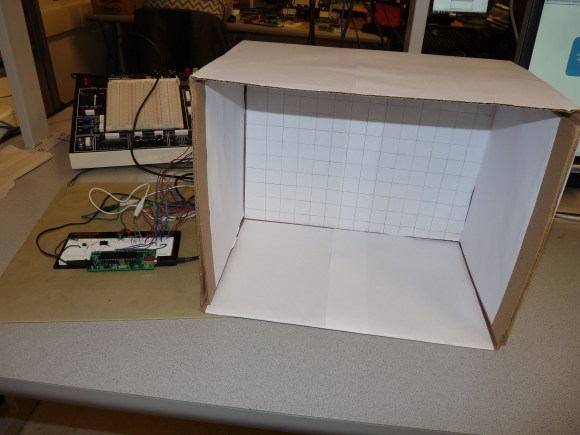
A team of students from Cornell University are looking into alternative ways of creating a security system that can be locked or unlocked by using physical gestures in an enclosed space.
It is the final year project for [Ankur], [Darshan] and [Saisrinivasan] in their MEng of Electrical and Computer Engineering. The system prototype is capable of recording a gesture and then comparing the gesture with future gestures to lock or unlock the system. Consider it like a secret handshake to get into the office!
To analyze the gesture they are using four SparkFun proximity sensors setup in a linear array to sense the distance a hand is moved. An ATMega1284P is used to convert the analog sensor signal to digital for further processing. The project is extremely well documented, as it appears to be the final report for the project.
A short video after the break shows off the prototype and gives a good explanation of how the system works.
















Why not 3D capacitive sensing?
why this application at all? i mean im not trying to be that guy, but, what?
This. The number of different hand gestures the average person can invent is probably a fraction of the number of passwords they can invent (and they’re still typing “password” as their bank security code…), I imagine most doors would open by trying half a dozen gestures.
Our project is highly precision based, and after repetitive testing, I can assure one cannot unlock a door without knowing the pattern, let alone given a dozen tries. There has been some threshold given to the user, but the limits are very tightly set.
Your point is valid that the number of patterns may seem limited than the number of passwords.However, like any security system there is going to be a limit on the number of trials allowed. A real time system may sound an alarm or lock the system if an incorrect pattern is tried say 5 times.
To answer the original question of why such a project, like our inspiration which is a mobile gesture lock, a user can either keep a password or a pattern like this or both.
Wanted to make it really cheap. And 3D capacitive sensing isn’t.
not capacitive, but e-field based for <$5
http://www.microchip.com/wwwproducts/Devices.aspx?product=MGC3130
plus you don't have to put your hand in a box!
Any one else reminded of that scene from undercover brother?
All I could think of is:
http://www.youtube.com/watch?v=g_IJCpZfrPA
Would be interesting to see something similar replace PIN for credit/debit cards.
With more robustness and security, this could very well be an alternative for it.
The box with the grid lines reminded me of the holodeck when it is turned off…
These guys are a genius. Amazing work there, but the only problem here is that hackers will still find a way to compromise this gesture-based security locks.